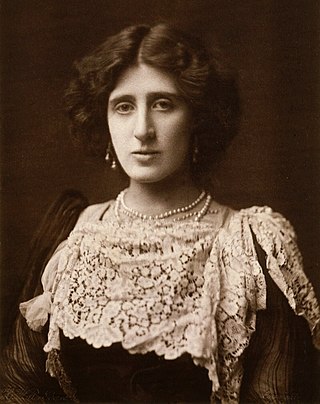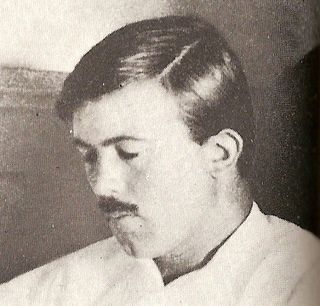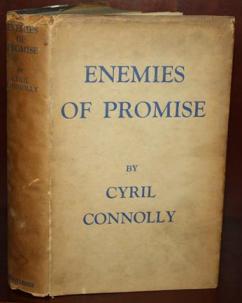
Lady Ottoline Violet Anne Morrell was an English aristocrat and society hostess. Her patronage was influential in artistic and intellectual circles, where she befriended writers including Aldous Huxley, Siegfried Sassoon, T. S. Eliot and D. H. Lawrence, and artists including Mark Gertler, Dora Carrington and Gilbert Spencer.

Sir Charles Otto Desmond MacCarthy was a British writer and literary and dramatic critic. He was a member of the Cambridge Apostles, the intellectual secret society, from 1896.

Garsington Manor, in the village of Garsington, near Oxford, England, is a country house, dating from the 17th century. Its fame derives principally from its owner in the early 20th century, the "legendary Ottoline Morrell, who held court from 1915 to 1924".

Charles John Vaughan was an English scholar and Anglican churchman.

Gathorne Gathorne-Hardy, 1st Earl of Cranbrook, was a prominent British Conservative politician. He held cabinet office in every Conservative government between 1858 and 1892. He served as Home Secretary from 1867 to 1868, Secretary of State for War from 1874 to 1878, Lord President of the Council from 1885 to 1886 and as Chancellor of the Duchy of Lancaster until 1886. In 1878, he was appointed Secretary of State for India and thereafter was elevated to the peerage, entering the House of Lords as Viscount Cranbrook. He has been described as a moderate, middle-of-the-road Anglican, and a key ally of Disraeli.

Cyril Vernon Connolly CBE was an English literary critic and writer. He was the editor of the influential literary magazine Horizon (1940–49) and wrote Enemies of Promise (1938), which combined literary criticism with an autobiographical exploration of why he failed to become the successful author of fiction that he had aspired to be in his youth.

Robert Pearsall Smith (1827–1898) was a lay leader in the Holiness movement in the United States and the Higher Life movement in Great Britain. His book Holiness Through Faith (1870) is one of the foundational works of the Holiness movement. He was also a businessman in the Philadelphia area, publishing maps and managing a glass factory.

Hannah Tatum Whitall Smith was a lay speaker and author in the Holiness movement in the United States and the Higher Life movement in the United Kingdom. She was also active in the women's suffrage movement and the temperance movement.
Jonathan Gathorne-Hardy was a British author, known for biographies, including one of Alfred Kinsey, and books of social history on the British nanny and public school system. For his autobiography, Half an Arch, he received the J. R. Ackerley Prize for Autobiography in 2005. He also wrote novels and children's literature. He subsequently worked in advertising and publishing.

Robert Lucas Pearsall was an English composer mainly of vocal music, including an elaborate setting of "In dulci jubilo" and the richly harmonic part song Lay a garland of 1840, both still often performed today. He spent the last 31 years of his life abroad, at first in Germany, then at a castle he bought in Switzerland.
Trivia is information and data that are considered to be of little value.

Edward FitzGerald "Gerald" Brenan, CBE, MC was a British writer and hispanist who spent much of his life in Spain.

Enemies of Promise is a critical and autobiographical work by English writer Cyril Connolly published in 1938, later enlarged when it was first reprinted in 1948. Together with The Unquiet Grave (1944), it is one of the two books for which the author is mainly remembered.

The Whisperer in Darkness is a 26,000-word novella by American writer H. P. Lovecraft. Written February–September 1930, it was first published in Weird Tales, August 1931. Similar to The Colour Out of Space (1927), it is a blend of horror and science fiction. Although it makes numerous references to the Cthulhu Mythos, the story is not a central part of the mythos, but reflects a shift in Lovecraft's writing at this time towards science fiction. The story also introduces the Mi-Go, an extraterrestrial race of fungoid creatures.
Alfred Erskine Gathorne-Hardy, was a British Conservative politician, landowner, and writer.

Mary Berenson was an American art historian, now thought to have had a large hand in some of the writings of her second husband, Bernard Berenson.
Life and Letters was an English literary journal first published between June 1928 and April 1935.

Horizon: A Review of Literature and Art was a literary magazine published in London, UK, between December 1939 and January 1950. Published every four weeks, it was edited by Cyril Connolly, who made it into a platform for a wide range of distinguished and emerging writers. It had a print run of 120 issues or 20 volumes.
The Hon. Robert Gathorne-Hardy, was a British prose writer, poet, botanist, and horticulturalist. He was educated at Eton College and Christ Church, Oxford. Robert was the third of four sons of Gathorne Gathorne-Hardy, 3rd Earl of Cranbrook. He was for forty years a resident of Stanford Dingley in Berkshire. In Oxford he co-founded the Uffizi Society alongside Anthony Eden and Lord David Cecil.
Lady Anne Catherine Dorothy Hill was a British bookseller and writer.















